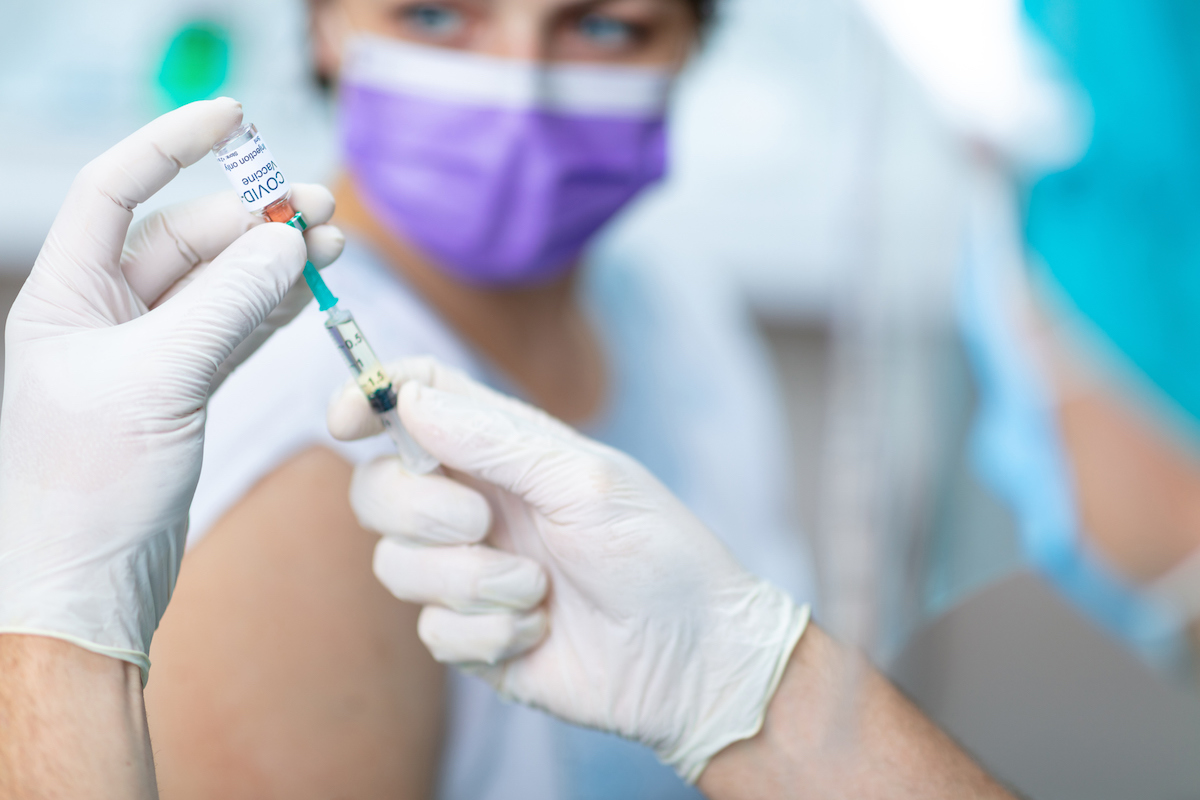<< Back
Why This Doctor, a Hospital’s Chief of Medicine, Got the COVID-19 Vaccine

December 21, 2020
As the Chief of Medicine at Windham Hospital, Dr. Melisha Cumberland has spent a great deal of time treating patients with COVID-19. Along with some of her peers, Dr. Cumberland was among the first providers in Connecticut to receive the Pfizer vaccine.
Q: Why did you choose to get the vaccine and did you experience any side effects after getting it?
A: As a healthcare provider and a leader at Windham Hospital, I felt it was important to protect myself and show my colleagues that I believe in the science behind this vaccine. I am now one step closer to being safe from the virus and that will allow me to safely care for patients with and without COVID.
 Dr. Melisha Cumberland
Dr. Melisha Cumberland
Other than the usual injection site soreness, I did not experience any symptoms from the first dose of the vaccine. I will get my second dose in several weeks. Research indicates that some people experience mild side effect such as fatigue, headache and muscle aches after the second dose. As with the flu vaccine, side effects are expected to last less than 24 hours.
Q: Is the vaccine safe and effective?
A: So far, the data we have indicates that the vaccine is safe. No serious long-term side effects have been documented, and any side effects that do occur are not severe. The Pfizer BioNTech vaccine is 95 percent effective and the Moderna vaccine is 94.1 percent effective. As a comparison, the flu vaccine is usually considered between 40 and 60 percent effective each year.
Q: How does the vaccine work?
A: The Pfizer and Moderna vaccines use a new technology known as messenger RNA (mRNA). These vaccines contain part of the virus’ genetic information that helps your body’s cells produce a viral protein that stops COVID-19.
Q: Who should consider getting the COVID vaccine?
A: Everyone should consider getting the COVID vaccine. The COVID-19 virus will likely become the world’s leading infectious disease killer in 2020, exceeding deaths from tuberculosis, malaria and HIV. Nearly 7 million people on this planet have been infected by this virus and more than 300,000 people have died. To stop its spread, we need much of the world’s population to be vaccinated. If we do not protect ourselves against the virus, we will continue to see these numbers climb.
By choosing not to get the vaccine you may be putting yourself and your loved ones at risk and we will have to continue living in a world where masks and physical distancing remain necessary to fend off the virus.
Q: Why do you think some people might be afraid to get the vaccine?
A: Historically, vaccines have often been a polarizing topic. The vaccine was created quickly and I think people may feel overwhelmed or confused as they read the headlines, scan the discussions on social media and talk to their family and friends.
Ultimately, when the time comes to make the decision about whether or not to get the vaccine, each individual should make the choice that is right for themselves, their family and loved ones.
I chose to get the vaccine to protect my family and my patients from this very contagious disease. I sincerely hope next year, we can all remove our masks, smile at one another and move forward.
This column originally appeared in the Willimantic Chronicle. For more information about the COVID-19 vaccine, click here.
If you’re 75 or older and wanted to schedule your COVID-19 vaccine, log into your MyChartPlus account and find a Hartford HealthCare vaccine clinic near you. If you don’t have a MyChartPlus account, set one up here.